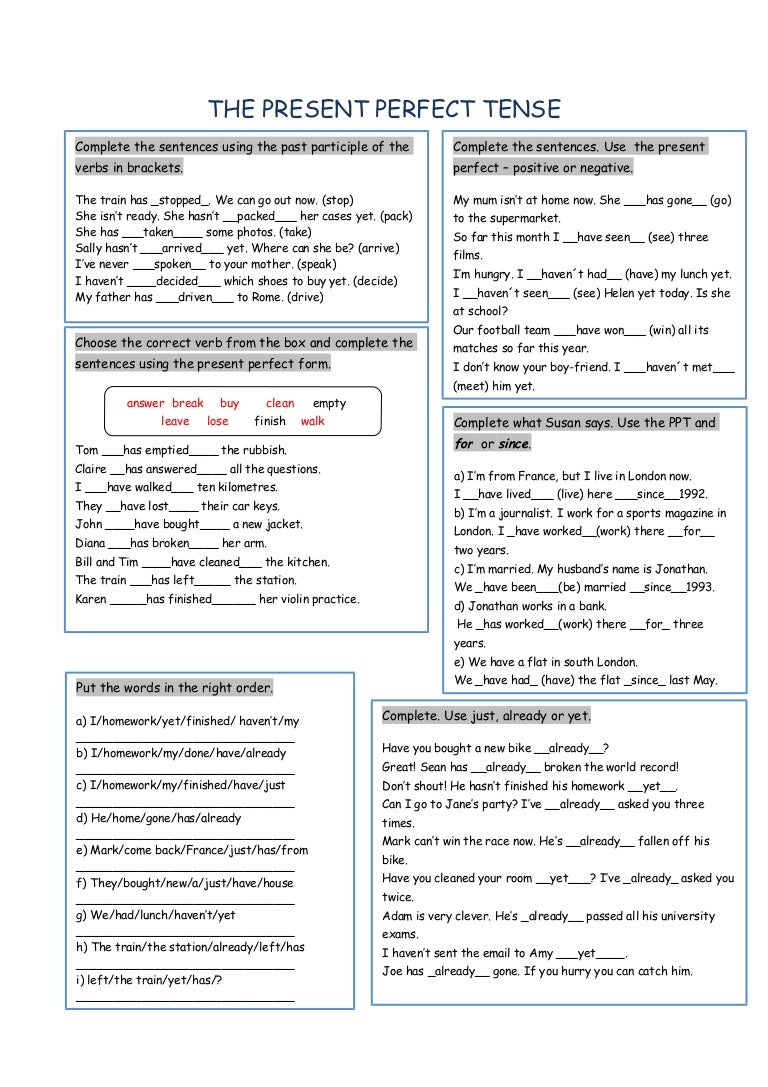
Perfect tense exercises
The Basics of Perfect Verb Tense What is Perfect Verb Tense? Perfect verb tense is used to show an action that is complete and finished, or perfected. This tense is expressed by adding one of the auxiliary verbs — have, has, or had — to the past participle form of the main verb. For example:
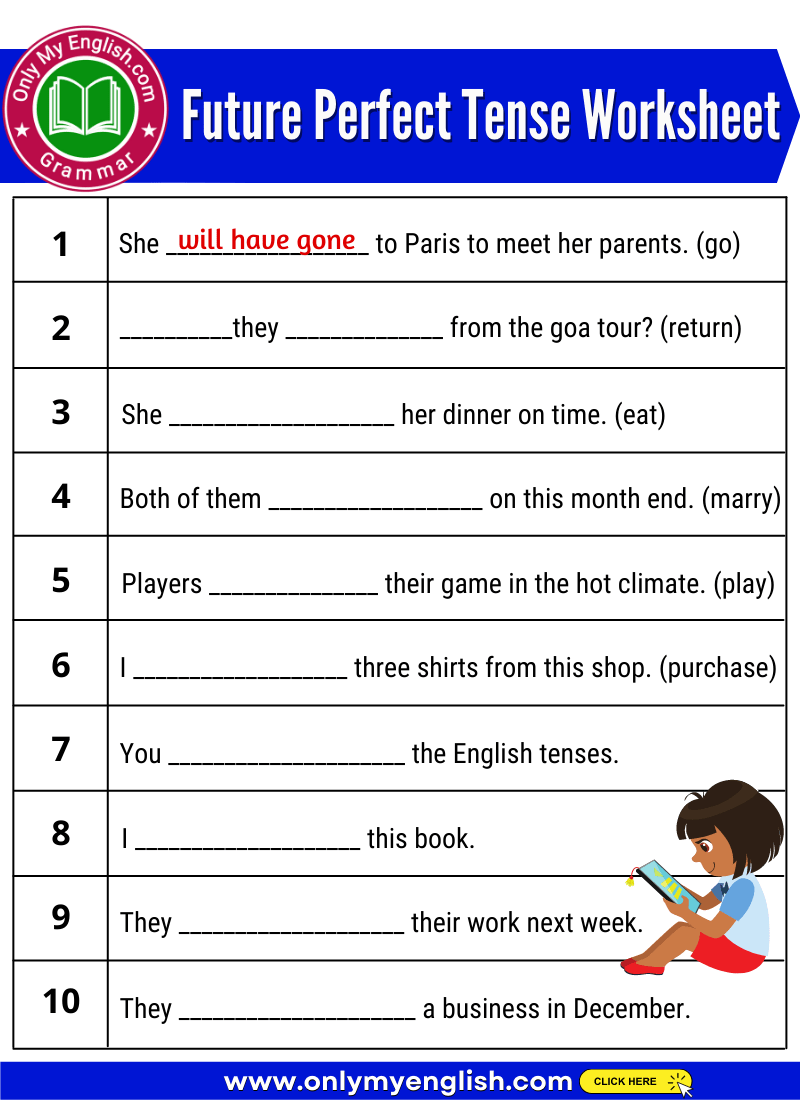
Future Perfect Tense Exercises with Answers »
The Present Perfect Simple Tense Perfect English Grammar How to form the present perfect Click here to download this explanation as a pdf Learn about USING the present perfect here For a list of all the present perfect exercises, click here To make the positive present perfect tense, use: 'have' / 'has' + the past participle
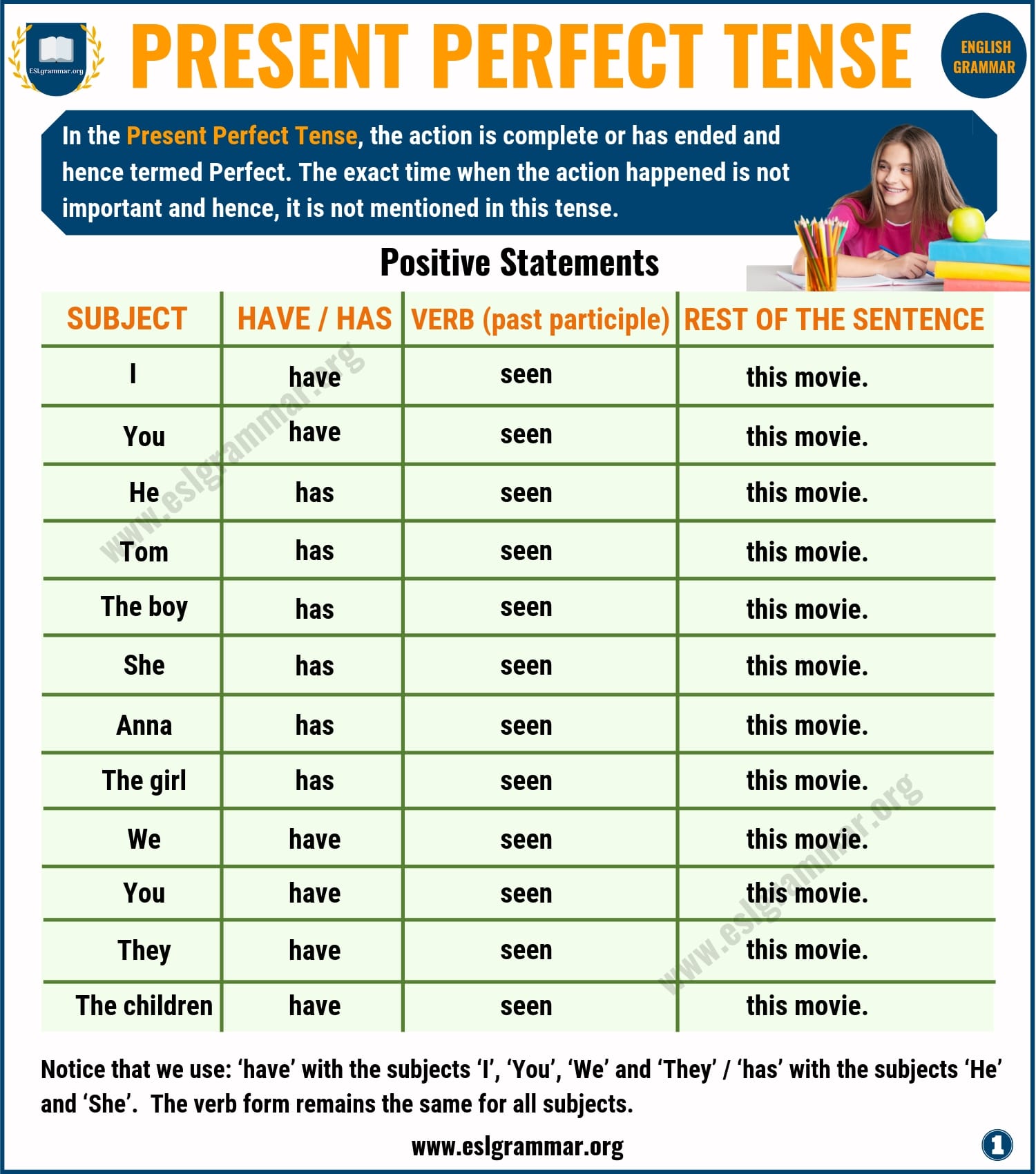
English Grammar Present Perfect Tense Exercises Online degrees
Perfect tense is a category of verb tense used to describe completed actions. It covers the past perfect tense, the present perfect tense, and the future perfect tense. It is sometimes called the complete tense . Table of Contents Examples of Verbs in a Perfect Tense Forming the Perfect Tenses The Perfect Tenses in the Past, Present, and Future

Present perfect tense Interactive worksheet Presente perfecto, Ejercicios de ingles
Put the verbs in brackets into their correct forms! PastTense and Present Perfect Tense - Simple and Continuous. Tim ( WRITE) six pages of his book this morning. Here they are. Yesterday he only ( WRITE) two pages. Let's play tennis! - No, thanks. I ( ALREADY PLAY) three matches this week and I need a rest. Paul ( MAKE) films since he was in.
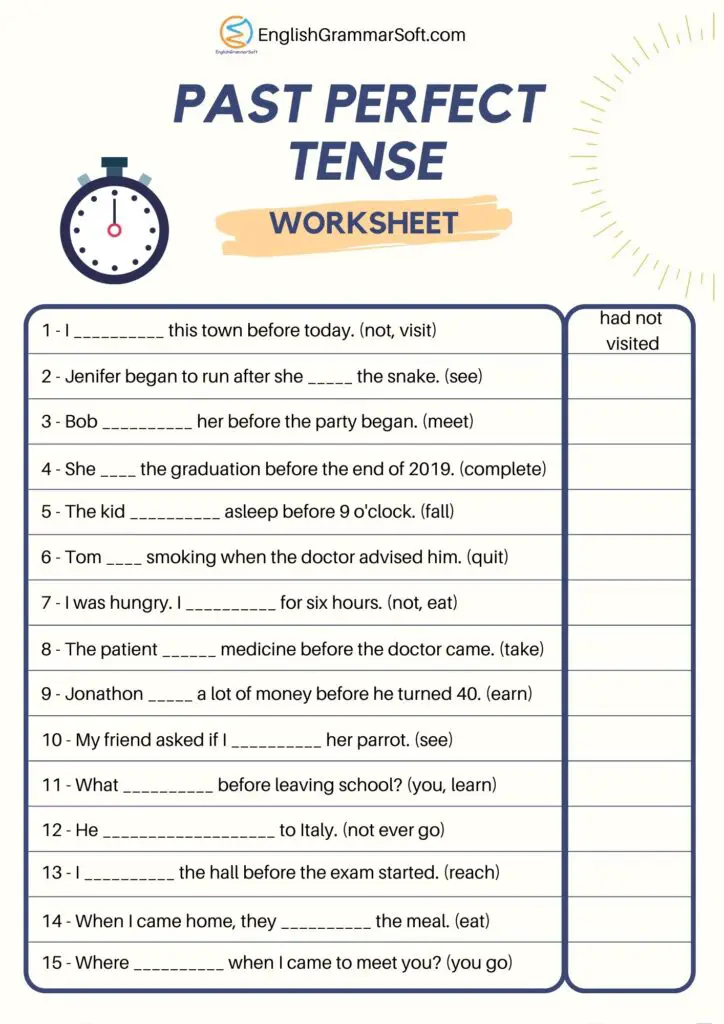
Worksheet for Past Perfect Tense [with Answers] EnglishGrammarSoft
Here are all the English grammar exercises on the site so far. Irregular Verbs: Irregular Past Simple, Part 1. Irregular Past Simple, Part 2. Irregular Past Participle, Part 1. Irregular Past Participle, Part 2. Present Simple Form (with the verb 'be'): Present Simple Positive with 'be'. Present Simple Negative with 'be'.

Future Perfect Tense worksheet
Perfect tenses exercise July 19, 2015 - Complete the following sentences using appropriate perfect tense forms of the verbs in the brackets. 1. Where could the horse..? went have gone had gone 2. Circumstances. him to leave school when he was just ten. forced have forced were forcing 3.

PRESENT PERFECT TENSE Present perfect, Perfect tense, Present perfect tense exercises
Here you will find Exercises, Tests and Riddles on English Tenses. 1. The Simple Tenses Simple Present. 4705 Easy sentences in the Simple Present - Exercise 3; 4019 Ending -s in the Simple Present - Crossword 1; 4021 Ending -s in the Simple Present - Crossword 2; 4035 Negations in the Simple Present - Exercise 1; 4025 Negations in the Simple Present, don't or doesn't - Exercise 2
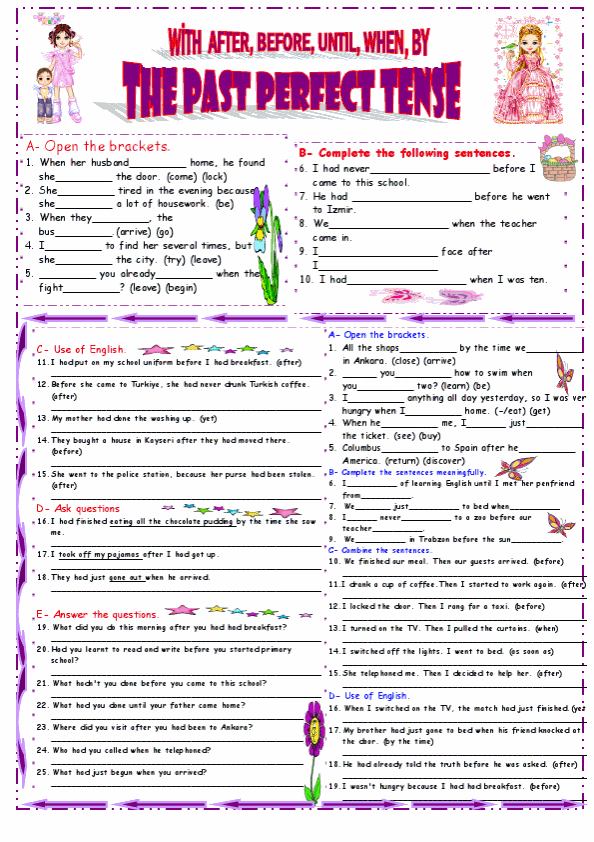
Past Perfect Tense Exercises, Free Printable Past Perfect Tense ESL Worksheets EngWorksheets
Perfect Tenses Worksheet. Also See: All Tenses Exercises. Choose the appropriate options to complete the sentences. 1. In the evenings, I often play chess with my next door neighbor. I ---- chess with him ever since I ---- to live here ten years ago. A) have been playing / came.

The 25+ best Tenses exercises ideas on Pinterest English tenses exercises, English exercises
Exercise Group #6: Conditional Tenses (Past Unreal, Mixed), Wish, and Unless. If Harry (study) harder as a child, he might have a better job now. If I had known it was a costume party, I (wear) a costume. I wish I (not/spend) so much money on clothes. Lily wishes her children (help) more with the chores.
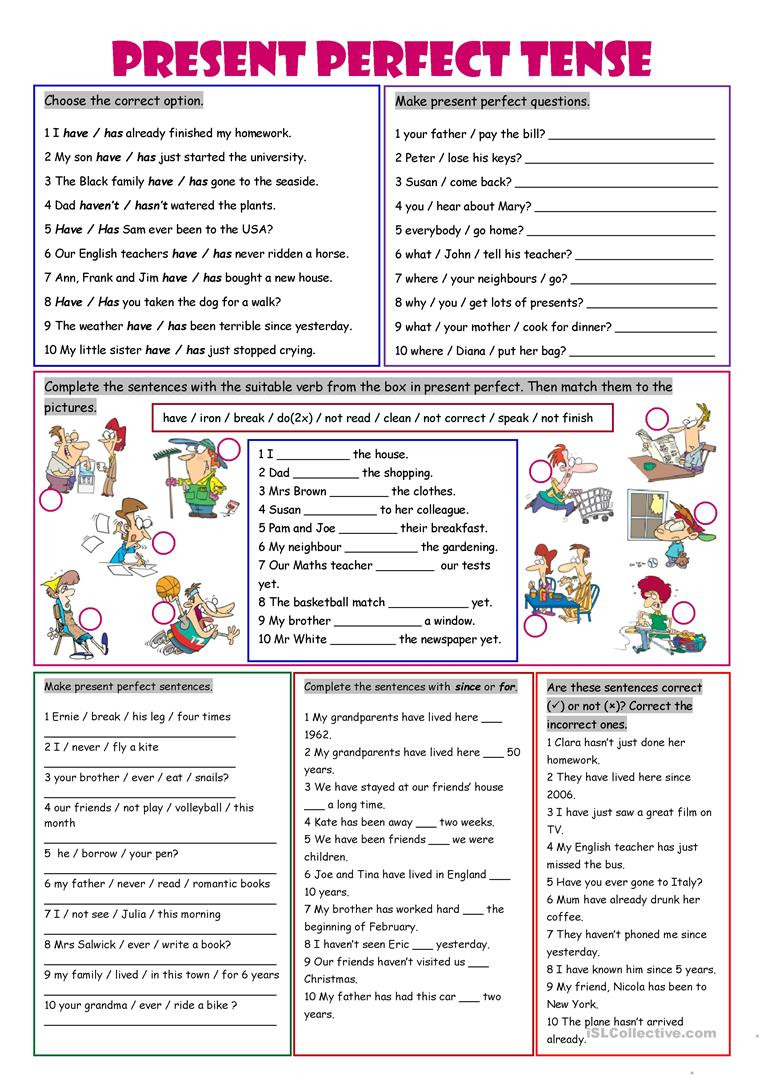
Present Perfect Tense English Esl Worksheets —
Past Perfect Exercise 1 This past perfect exercise practises making the positive and negative forms of the tense. Click here to review how to make the past perfect . Go back to the grammar exercises page Click here to download this exercise in PDF (with answers) Past Perfect - Positive and Negative Make the positive or negative past perfect simple
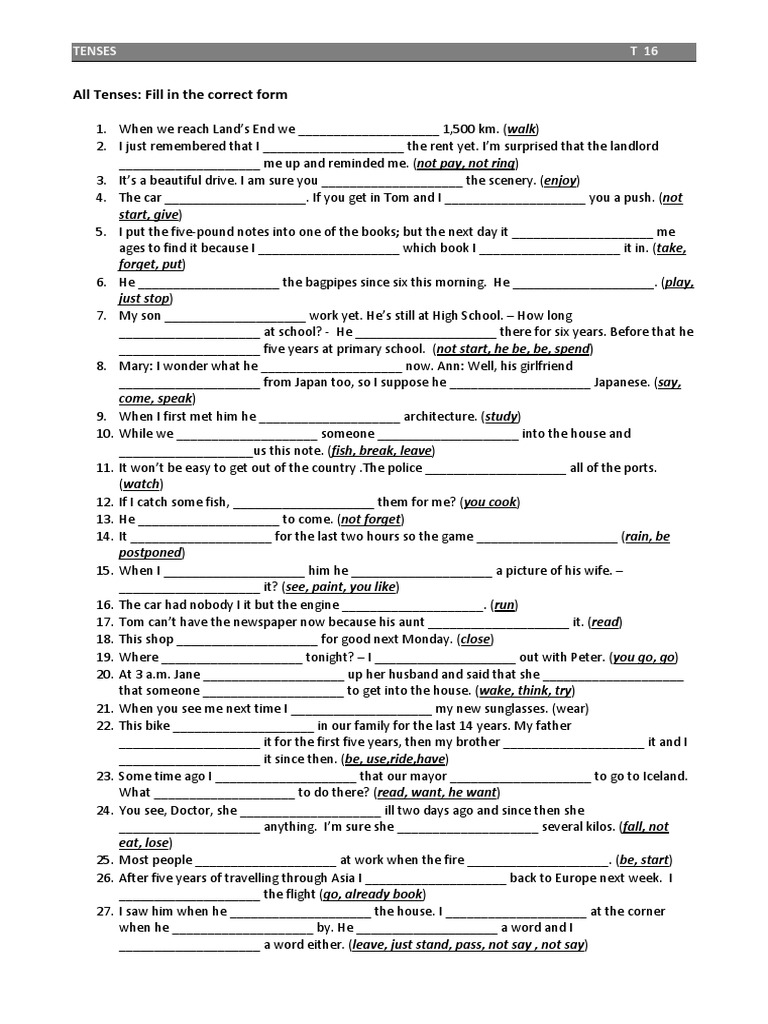
Tenses Exercises
Grammar Exercises This is a list of all the grammar exercises on this site, about verb tenses and other things. Present Simple Spelling Changes This is an explanation of how we sometimes need to change the spelling of a verb with 'he, she, it' in the present simple, for example why 'cry' becomes 'cries' but 'play' is 'plays'. Adverbs of Frequency

Past Perfect Tense Interactive worksheet
1. Verb Tenses Fill in the Blanks Worksheets Simple Tenses Simple Present Tense Exercise 1 - Simple Present 3rd Person Exercise - Present Progressive Exercise - Simple Past Tense Exercises 1A - 1B Simple Past Tense Regular Verbs - Simple Past Irregular Verbs Exercise - Simple Present vs Present Progressive With Vocabulary
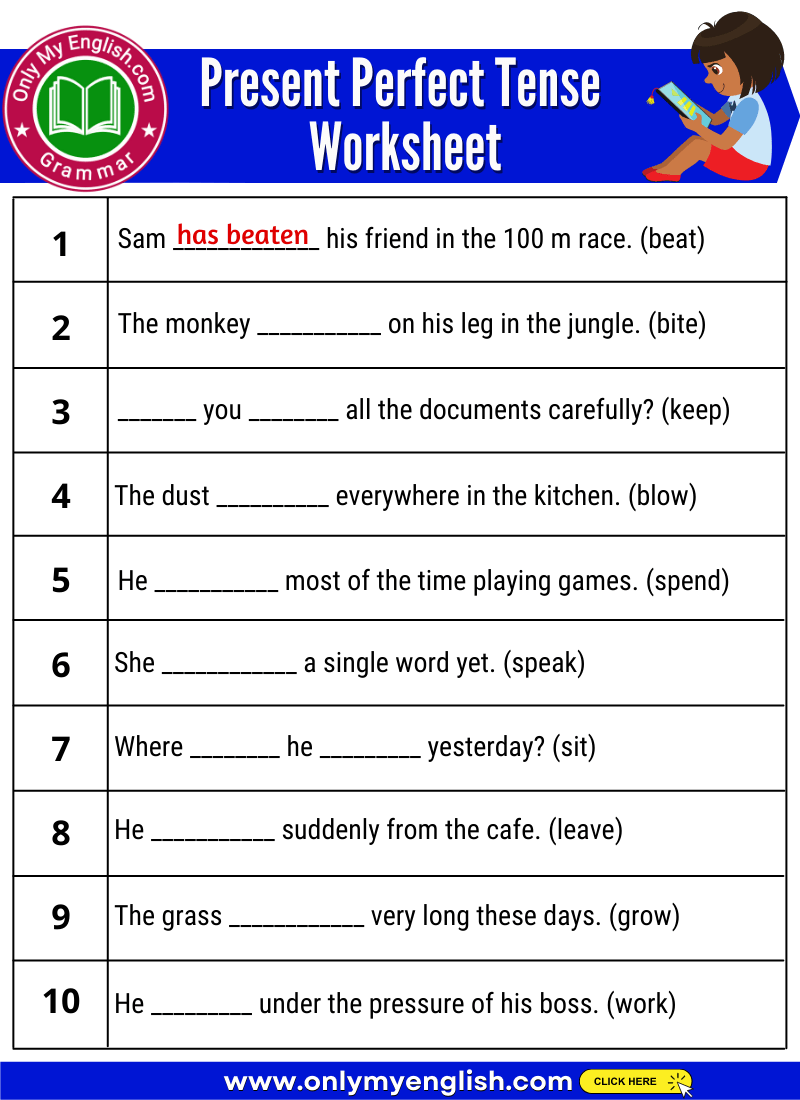
Present Perfect Tense Exercises with Answers »
Subject Exercises: Perfect Tenses Mixed Exercise Present Perfect vs Perfect Progressive Present Perfect vs Past Perfect Tenses All Tenses Exercises PDF Exercises: Printable Worksheets See the Video Exercise Perfect Tenses Mixed Exercise Watch on Complete the sentences using appropriate verb forms.
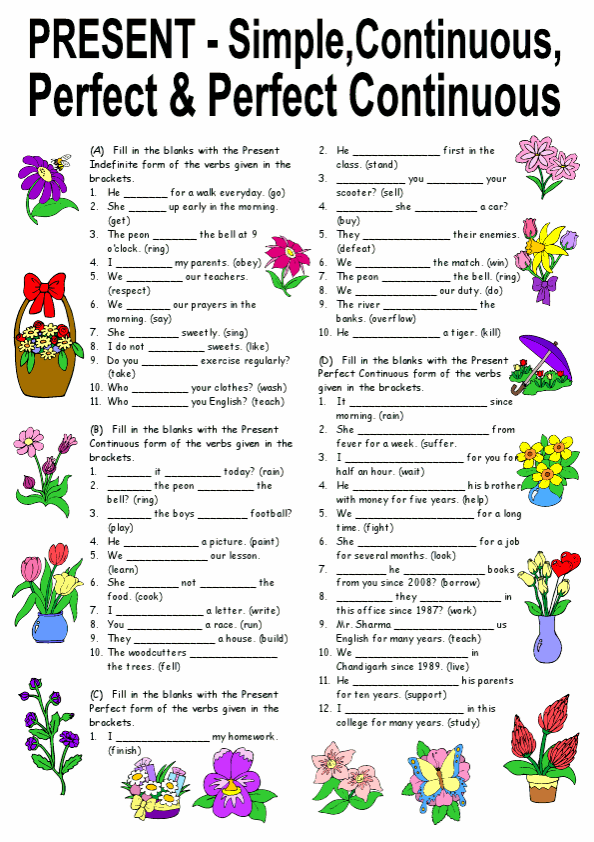
Exercises On Present Simple, Continuous, Perfect Perfect Continuous Tenses Editable With Answers
Perfect tenses worksheet. April 16, 2016 -. The perfect tenses are used to talk about actions that are completed at the time of speaking. The three forms of the perfect tenses are: The present perfect tense, the past perfect tense and the future perfect tense. I have finished my homework.
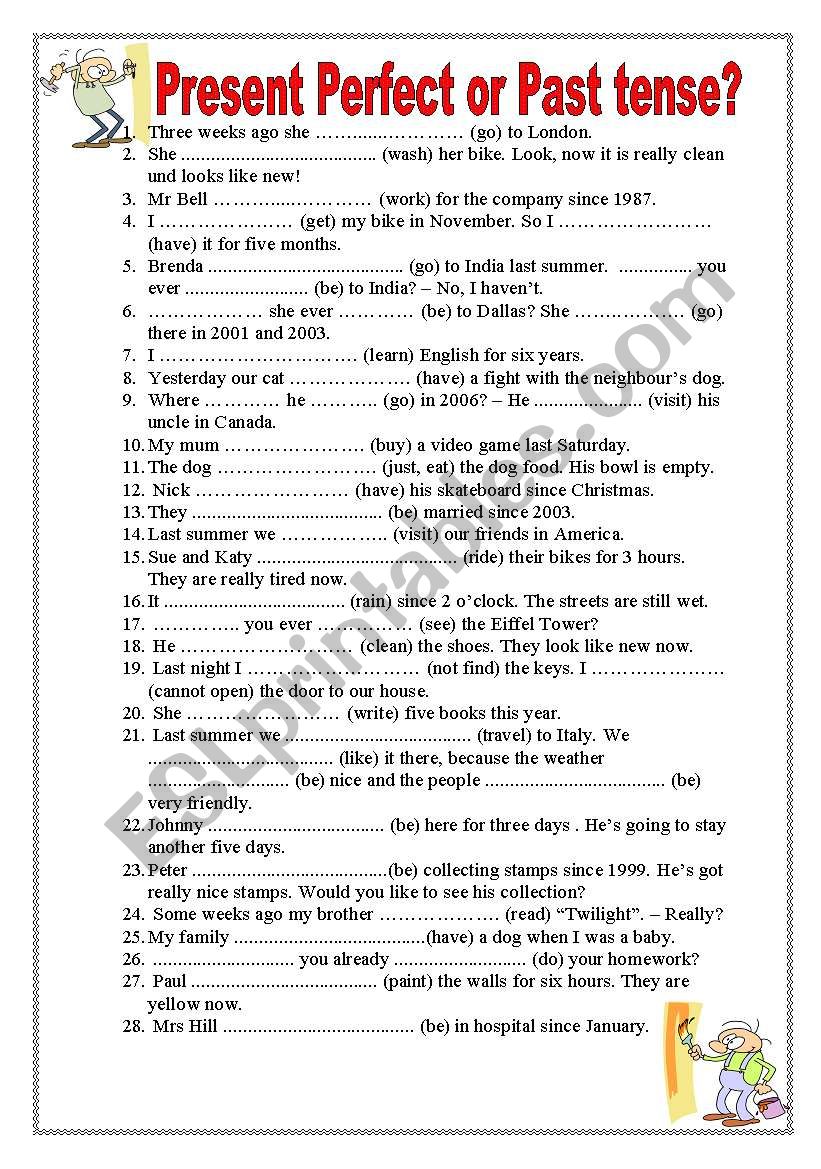
English worksheets Present Perfect Tense or Past Tense
Perfect English Grammar is a website that offers lots of free explanations and exercises to help you perfect your English grammar. You can learn about indirect questions, inversion, irregular verbs, and more. Whether you are a beginner or an advanced learner, you will find something useful and interesting on this site.
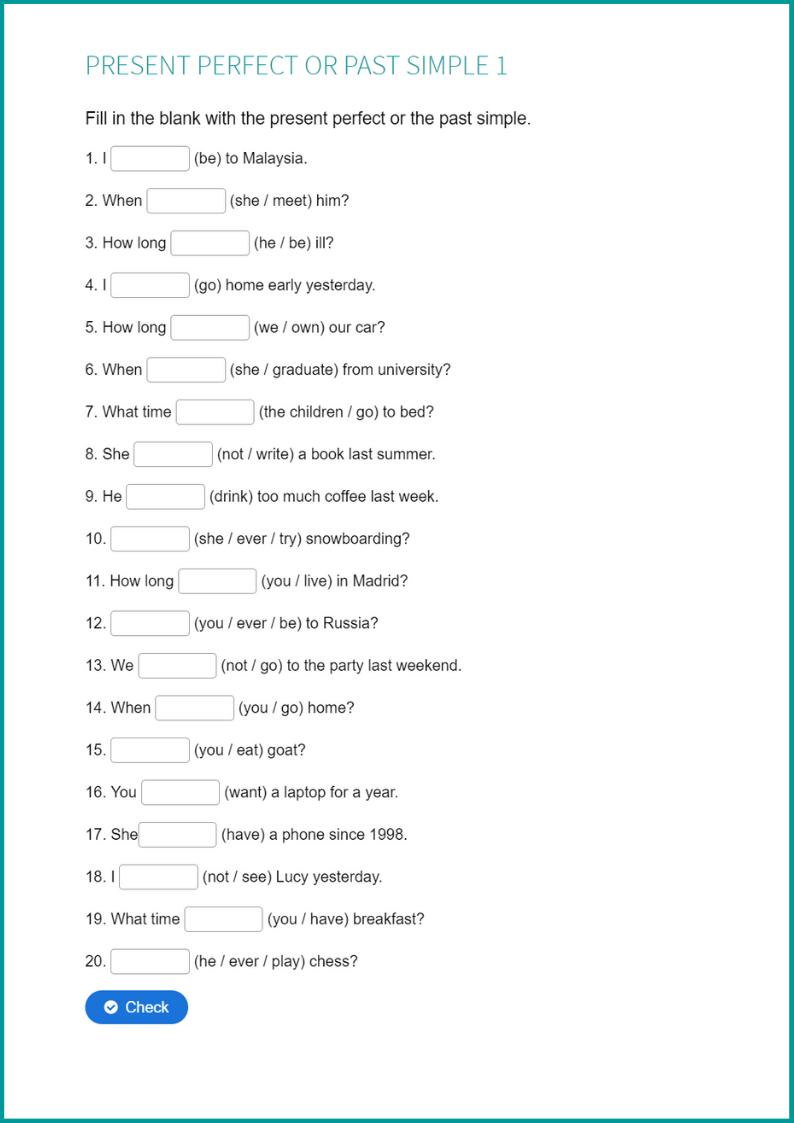
Using The Present Perfect Tense in English
In these cases, we use the Simple Past tense. Past Perfect Tense. In English grammar, the Past Perfect Tense is used to describe an action that was completed before another action took place in the past. It is formed using "had" and the past participle of the verb. The Past Perfect Tense is often used to show the sequence of events in the past.